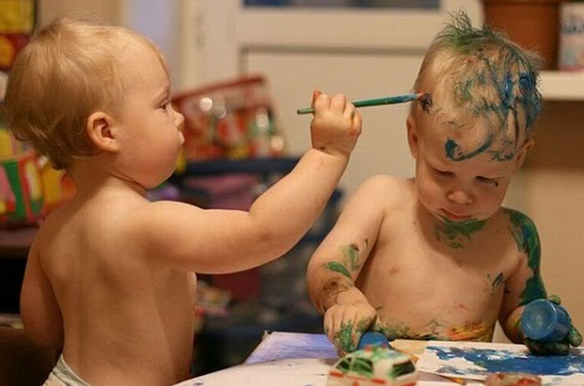What do you do when you get negative feedback about your child once – or day after day from their teacher/school counselor/principal? What happens when you hear your child is below grade level in reading, bullying the other kids in class, causing problems in music, or being distracting in social studies? What should you do when all you really feel like doing is crying in the backseat of your minivan?
- Take a deep breath. Often negative feedback from schools hits us when we aren’t expecting it. There we are with a tray of cupcakes and 4 minutes to get to work, when the teacher swoops by and says “by the way, your daughter has no friends!â€Â Taken off guard in this way can be tough (to say the least) so the first step is to put down the cupcakes, go outside, and breathe before you move onto anything else.
- Put the phone down. Our natural reaction to news that our kids aren’t perfect is to get on the phone and fix it. Whether that be scheduling a conference with the school, making an appointment with a pediatrician, or finding a psychologist. These aren’t necessarily bad moves, but sometimes it can be helpful to really digest the feedback before we launch into action. Talk to your partner, your mom, a close friend – but hold off on making any concrete moves for at least 24 hours.
- Ask for a meeting. Once you have cooled down and dried your eyes, call or email your child’s teacher and ask for a meeting. If you have a partner or spouse, make sure they can be there too. It’s best to have a couple sets of ears in the meeting, in case you mis-hear something. For example, you might hear:
“Your daughter will never amount to anything and is destined for a life of misery.â€Â When what the teacher really said was “Your daughter might benefit from a little extra reading practice.â€
- You’re an expert too. Teachers are wonderful, honorable, and well-trained professionals. We should listen to them and be respectful of their opinions about our children. We should also give ourselves the same respect; after all, we are experts on our children too. Have a gut feeling that what the teacher says doesn’t fit? Get a second opinion, and trust your own as well.
- Ask your kids. Kids are no dummies – I don’t care what their age. They will likely know something is going on, so it is appropriate to ask their opinion. “Gosh Jonathan, Ms. Jones said you were giving some of the kids in your class a hard time. Can you tell me what’s going on?â€Â And once you ask, don’t forget to listen. Often our kids have more insight into their “issues†than we give them credit for.
